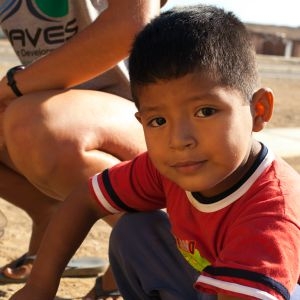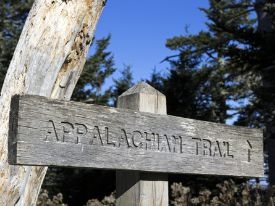Altruism boosts happiness. Traveling not only increases happiness but also opens our horizons to new cultures and ideas. Combine the two and you’ve got transformative travel.
Volunteer opportunities have widened in the last few years, from “surf and serve” programs in Peru to pulling radishes from the earth at organic farms in Japan to exploring the inky depths of Belize’s Barrier Reef.
WAVES for Development
The destination: Lobitos, Peru
 “Go to surf, stay to serve” is the motto of WAVES for Development, which hosts surf voluntourism trips in Peru. Launched by a group of local and international surfers in Peru in 2004, the program is rooted in the belief that “access to and conservation of water is a necessity for the future of humanity.”
“Go to surf, stay to serve” is the motto of WAVES for Development, which hosts surf voluntourism trips in Peru. Launched by a group of local and international surfers in Peru in 2004, the program is rooted in the belief that “access to and conservation of water is a necessity for the future of humanity.”
The program is ideal for solo or group travelers, with an inviting, communal atmosphere—rooms and meals are shared, everyone goes surfing together. The volunteer work is equally stimulating, including environmental education, social entrepreneurship, teaching English, surf classes and community outreach. And, of course, the bonus is your location: The tiny surf village of Lobitos, population 1,000, on the sun-warmed northern coast of Peru.
The information: wavesfordevelopment.org
Appalachian Trail Conservancy
The destination: Across 14 states in the U.S., from Georgia to Maine
 The Appalachian Trail is more than hiking. For many, it's a test of self. Numerous hikers have been inspired by the A.T.: In 2010, Mike Hanson was one of the first blind hikers to traverse the 2,180-mile trail; in 1998, travel writer Bill Bryson became (in his words) the laziest person to trek the trail, overcoming his “waddlesome sloth”; and in 2011, Jennifer Pharr Davis, a long-distance hiker and author, nabbed the record for fastest thru-hike of the trail (46 days, 11 hours, and 20 minutes).
The Appalachian Trail is more than hiking. For many, it's a test of self. Numerous hikers have been inspired by the A.T.: In 2010, Mike Hanson was one of the first blind hikers to traverse the 2,180-mile trail; in 1998, travel writer Bill Bryson became (in his words) the laziest person to trek the trail, overcoming his “waddlesome sloth”; and in 2011, Jennifer Pharr Davis, a long-distance hiker and author, nabbed the record for fastest thru-hike of the trail (46 days, 11 hours, and 20 minutes).
But there would be no trail without the volunteers: The trail is maintained throughout the year by over 6,000 volunteers, and they're always looking for more. Sign up and you’ll do everything from helping protect the land surrounding the footpath to supporting teachers in the Trail to Every Classroom program. Best of all: The trail is vast, as is the surrounding wilderness, which means you can often have large swathes of it to yourself – with just some local woodpeckers, moose and the occasional black bear for company.
The information: appalachiantrail.org
Oceanic Society
The destination: The Cayes, Belize
Belize may be tiny, but it claims this impressive superlative: the longest Barrier Reef in the Western Hemisphere. From the inky depths of the Great Blue Hole to the Hol Chan Marine Reserve, which is swimming with nurse sharks and stingrays, the Barrier Reef has one of planet’s richest marine ecosystems.
 The Oceanic Society offers travelers the chance to not just snorkel the waters, but to sustain it. The nonprofit Oceanic Society, founded in 1969, has eight-day “volunteer vacations” where you can work side-by-side with researchers to monitor the health of Turneffe Atoll’s coral reefs, including gathering data on water quality and reef inhabitants.
The Oceanic Society offers travelers the chance to not just snorkel the waters, but to sustain it. The nonprofit Oceanic Society, founded in 1969, has eight-day “volunteer vacations” where you can work side-by-side with researchers to monitor the health of Turneffe Atoll’s coral reefs, including gathering data on water quality and reef inhabitants.
Solo travelers are well catered to—you’ll stay in rustic beachfront cabanas, and after the sun goes down, presentations are given on everything from marine ecosystems to reef history. Top off the night with a Belikin beer (or three) on the beach under the bright moon.
Belize’s legacy of conservation is also evident inland, particularly at the Manatee and Primate Rehabilitation Center in Sarteneja, in Northern Belize, where volunteers assist with rehabilitation strategies for three species—the West Indian manatee, the Yucatan black howler monkey and Geoffrey’s spider monkey.
The information: oceanicsociety.org and wildtracksbelize.org
Read More: 33 Ideas for Happy Travels
WWOOF (Worldwide Opportunities on Organic Farms)
The destination: Worldwide, from Portugal to Japan
Prune olive trees in Portugal. Milk cows in Denmark. Get dirt under your fingernails pulling daikon radishes from the earth in Japan. WWOOF offers volunteer opportunities, from a couple of days to a several months, on organic farms and smallholdings across the globe.
Though it’s now a hugely successful initiative, WWOOF had humble beginnings: It was launched in 1971 by Sue Coppard, a secretary working in London, who didn’t have “the means or the opportunity to access the countryside and support the organic movement.” More than 40 years later, WWOOF continues to be especially popular with solo urbanites, who are looking to escape the big city (and canned food) by sweating over a hoe for the weekend, followed by dinner while overlooking the fields that provided it.
Most importantly, every volunteer effort helps ensure that organic fruits and veggies will continue to show up in the bins of your corner grocery store. Perhaps the greatest proof of WWOOf's accomplishment? It has now entered into volunteer lexicon as a verb: "I'm going to WWOOF this weekend…"
The information: wwoof.net
Read More: What does travel have to do with happiness?
AnneLise Sorensen is a travel journalist based in New York City.






